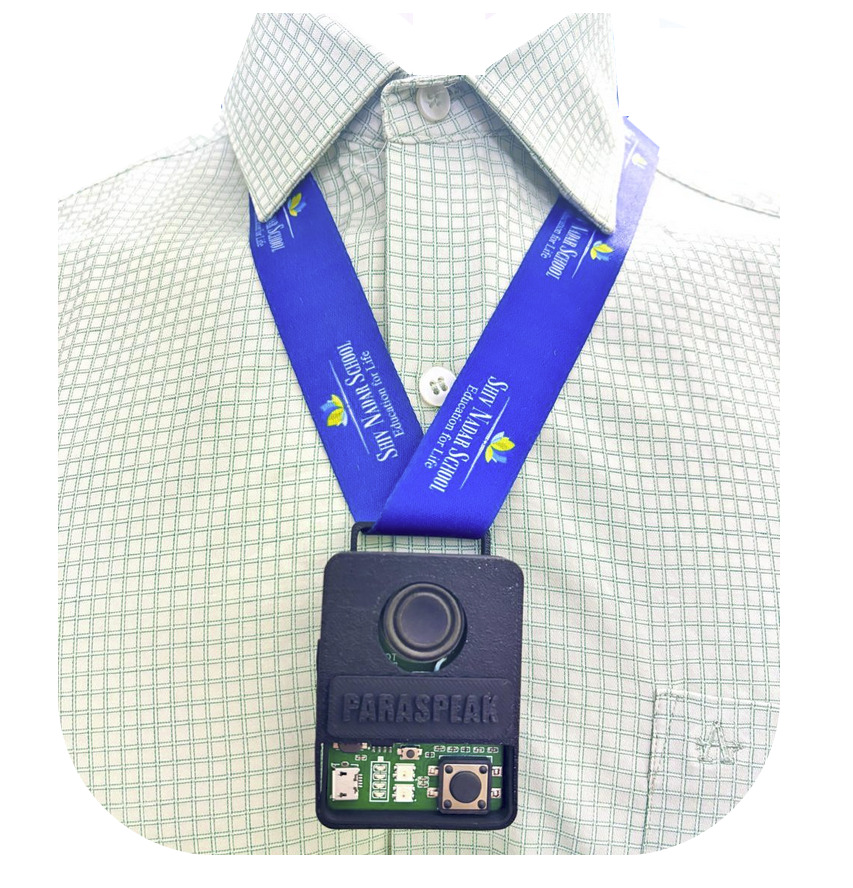Gurugram teen builds AI device to give voice to speech-impaired patients
“My prototype device records dysarthric speech, uploads it to a cloud server running my AI model and plays back the converted, clear speech in real-time,” says 16-year-old Pranet Khetan, a Class XI student at Shiv Nadar School, Gurugram.
Khetan has developed “Paraspeak”, a low-cost, AI-powered device that translates slurred or dysarthric speech into clear spoken Hindi — offering a lifeline to individuals affected by speech impairments due to stroke, cerebral palsy, paralysis, Parkinson’s disease and other neurological conditions.
Dysarthric speech occurs when damage to the brain or nervous system impairs muscle control in the mouth, tongue, or throat, making articulation difficult. Speech may become slurred, garbled, or hard to understand.
Paraspeak captures this unclear speech, transcribes it into text using AI and then converts the text into clear, natural-sounding audio using a text-to-speech engine.
 Paraspeak captures this unclear speech, transcribes it into text using AI and then converts the text into clear, natural-sounding audio using a text-to-speech engine.
Paraspeak captures this unclear speech, transcribes it into text using AI and then converts the text into clear, natural-sounding audio using a text-to-speech engine.
“Currently, it works in Hindi, but with more data collection, additional languages can be added quickly,” Pranet said, highlighting the potential for expansion.
“I built the largest known dataset of Hindi dysarthric speech. Using transfer learning, I fine-tuned an open-source model for recognition,” he said, adding that the future plans include expanding dataset to more Indian language like Tamil, Telugu, Malayalam and Bengali.
Paraspeak currently runs through a cloud server, and the time it takes to convert slurred to clear speech is around 20 seconds. But Khetan is optimistic. “The lag time can always be reduced if I upgrade my hardware or the server running the model,” he said.
While developing the system, Khetan encountered numerous technical setbacks. “There wasn’t one big challenge — just a lot of small ones,” he recalls. “I learned a lot through the process… many failed prototypes, burnt circuit boards, inaccurate models. But I tried my best to overcome them and didn’t give up.”
His perseverance paid off. Paraspeak received critical acclaim at the Regeneron International Science and Engineering Fair (ISEF) 2025 in Ohio, where Khetan was awarded the Fourth Grand Award in Biomedical Engineering along with a special mention from the International Council on Systems Engineering (INCOSE).
Affordability, Khetan says, was a core focus from the outset. “Affordability has been a central design principle from day one,” he explains. “The device costs just Rs 2,000 to manufacture, with a monthly subscription fee of Rs 200.” However, he notes that scaling the device for widespread use will require partnerships. “I’m looking for collaborations to mass-manufacture and distribute it — possibly through an NGO or a commercial model.”
Delhi